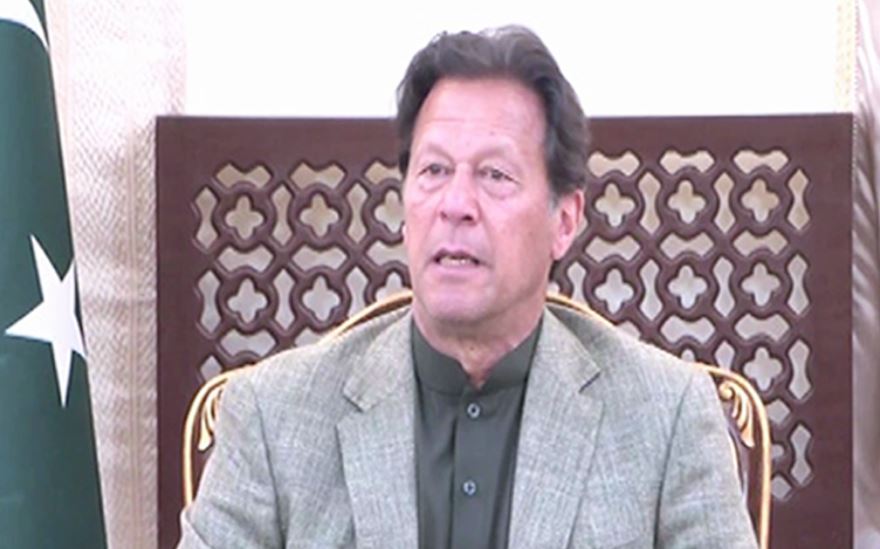ISLAMABAD: Prime Minister Imran Khan on Sunday dispelled the impression that Pakistan was more inclined towards China than any other country, clarifying that the country’s strategic direction was to “maintain relations with everyone”.
“We do not want to be in a position that implies as if we are a part of a certain camp,” the prime minister said while interacting with journalists, former diplomats and representatives of think tanks in Islamabad.
PM Imran said he believed that Rawalpindi — home to the country’s military establishment — was also clear about Pakistan’s strategic position.
Highlighting the challenge his government had been facing since he assumed power in 2018, Imran said one reason of the country’s plight was that some government officials’ own interests had not been aligned with the national interest.
“All government departments should know their roles clearly and they must have an idea what has to be done for wealth creation,” he underlined.
He said most of the countries generated much of their revenue through exports, however, “Pakistan is disconnected to it. In fact, the government is not facilitating exporters in sectors which can benefit them,” he said while pointing towards certain officials of his own government without naming them.
He recalled that the CEO of popular clothing brand Zara intended to visit Pakistan sometime back, saying he applied for a visa online. “However, our embassy emailed him to first report to them before proceeding further.”
“How can we prosper when there are problems like this,” he asked.
The premier also informed the meeting that businesses from China faced problems in Pakistan mainly due to “a lack of synergy between Centre and provinces, especially provinces where the ruling PTI do not have its government”.
Pakistan’s decision making ‘fractured’ after 18th amendment
In response to a question, the prime minister expressed regret over the government’s helplessness in bringing reforms, saying “we cannot amend laws related to special economic zones after the 18th Constitutional amendment.”
He said the country’s decision-making had been “fractured” after the amendment was passed by a previous government.
He said the imbalance created by the amendment could be gauged from the fact that wheat was being sold at different rates in different provinces — a practice he said should be discouraged by all means. “There are many similar examples,” he added.
Reforms very difficult without a two-third majority
Imran also highlighted another challenge his government was facing regarding the numbers game in Senate, where it lacks a majority.
He stressed that it was essential for a [ruling party] to have a two-thirds majority in parliament for the effective functioning of parliamentary democracy.
“If we want to reform society, then we must have this majority. Otherwise, any reform will face impediments,” he said, adding “we still face problems in the Senate where we do not have a majority.”
‘Remarkable’ China tour
The prime minister also briefed the gathering about his “remarkable” tour to China, which he said made ties between the two countries “stronger than ever”.
He said the world was rapidly undergoing changes, adding that his visit to China was much relevant in that context.
“China also appreciated our strategy to tackle Covid-19 and also they offered us economic support which will be translated into specific projects,” the premier said.
When a journalist said that a slowdown in the pace of Chinese projects in Pakistan was being taken as Beijing being unhappy with Islamabad, Information Minister Fawad Chaudhry chose to answer the query, saying the claim required a review of statistics.
Chaudhry said the two countries had seven working groups previously, which have now grown to 11. Similarly, he said the number of completed projects stood at two till 2018 and “now they are seven in three and a half years of this government”.
Chaudhry said the construction of Chinese projects during the incumbent government’s tenure had sped up and not slowed down.

















